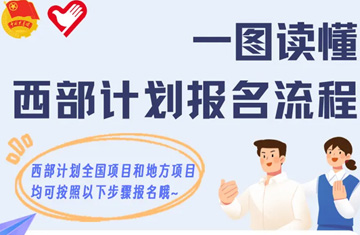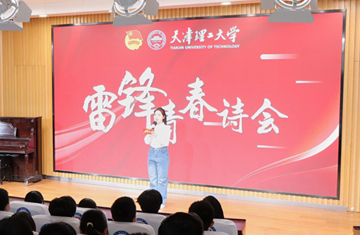
The mountain road is rugged, and Peng Wei often goes to the doctor by motorcycle. Photographed by reporter Jing Bifeng

Peng Wei is giving acupuncture treatment to patients with rheumatoid arthritis. Photographed by reporter Jing Bifeng
Five years ago, with the idea of going to a tough place to exercise, Peng Wei, a college graduate, signed up for the Western Volunteer Service Plan for College Students initiated by the League Central Committee and was assigned to the Jiangdi Township Health Center in Longsheng Autonomous County. Unexpectedly, this exercise made him take root here and stay here -——
□ Our reporter Jing Bifeng Correspondent Tang Jianbing Shen Xin
One day five years ago, people who came to see a doctor in Jiangdi Township Hospital found a young doctor with a beautiful face. Unlike other doctors, this young doctor can speak perfect Mandarin. His name is Peng Wei. In 2009, he was assigned to Jiangdi Township Health Center as a volunteer doctor as a "volunteer for the Western Plan".
Taking the elder martial brother as an example, Peng Wei chose to be a volunteer
In 2006, Huang Guijun, who graduated from Hubei College of Traditional Chinese Medicine, took part in the Western Volunteer Service Plan for College Students and served in the Laba Town Health Center in Zunyi County, Guizhou Province. After the service expired, he stayed in the Family Planning Office in Huangyang Town, Suiyang County. The traffic in Laba Town of Zunyi County served by Huang Guijun is inconvenient and information is blocked. The best medical institution in the town - Laba Town Health Center is short of medicine. In order to improve the conditions, during the service period, Huang Guijun and the president worked hard together. After many efforts, they finally got the support of the superior hospital, improved the medical conditions of the hospital, and had their own operating room.
Huang Guijun produced a series of CDs and organized medical workers in the whole town, including village doctors, to study for many times. He used his knowledge of Chinese medicine to diagnose and treat diseases in the health center, provided free acupuncture and moxibustion for patients, and took many free clinics on the street.
In July 2008, Huang Guijun took root in Guizhou when his service expired. His deeds had a great impact in the country after being reported by the media, especially in Hubei College of Traditional Chinese Medicine, his alma mater. Many students were infected by it.
The slogan "Go to the west, go to the grassroots, go to the place where the motherland needs most" shook the hearts of every student.
In the twinkling of an eye, it was the graduation season again. This summer, the students of Hubei College of Traditional Chinese Medicine were different from any previous class. Inspired by his senior brother Huang Guijun, many students rushed to sign up for the Western Plan. Among them was Peng Wei, majoring in integrated traditional and western medicine.
A class has only one quota, and many people have signed up to participate. Peng Wei was lucky to be selected from the top schools.
In Peng Wei's imagination, he might be assigned to Xinjiang, Sichuan, Guizhou and other places. Unexpectedly, he was assigned to Longsheng, Guangxi. It must be a place with inconvenient transportation -- the houses are shabby and shabby, which is a remote mountain area in Peng Wei's imagination. In Nanning, the training teacher repeatedly stressed "psychological preparation" and said: "The rural conditions in Guangxi are difficult. The first floor of the wooden building is the Animal Husbandry Bureau, the second floor is the Personnel Bureau, and the third floor is the Food and Meteorology Bureau." The volunteer was stunned, The teacher then explained: "There are pigs, sheep, cattle and other livestock on the first floor, people on the second floor, and some things on the third floor, which are outdoor." The teacher said: "There is a vent between the mountains, and people live there." Because the local accent is too strong, the vent was called "mad dog", which made everyone laugh.
The hard practical conditions make Peng Wei work harder and harder
After the training, Peng Wei and other volunteers came to Guilin from Nanning. The beautiful scenery along the way did not make him feel as hard as his teacher said. When the bus drove all the way through Wantian Yao Village, Lingui County, it gradually shuttled in the mountains, and he realized that he really wanted to go to the mountains.
After a short stay in Longsheng County, Peng Wei took the shuttle bus to the bottom of the river. After more than an hour of turbulence, he saw the dilapidated old streets in the mountains and the sparse pedestrians. The so-called hospital is just two old and low buildings. There are only a few doctors and about 10 nurses in the hospital. Peng Wei's dormitory is on the third floor of the clinic of the hospital. When I first went there, the room was full of spider webs, there was no glass on the window, and there were two wasp nests. Someone was cooking in the corridor, and everyone shared a toilet. On rainy days, when it rains outside and drizzles inside, pots and pans are all used to catch the rain.
There is no network in the hospital, and power is often cut off. After work, the doctors and nurses went home, leaving Peng Wei alone in the hospital. He was the only volunteer assigned to the bottom of the river. No one spoke to him. Feelings of loss and loneliness flooded in. Peng Wei even doubted his original choice. I often think of my hometown: Yibin, a small city on the Yangtze River, is flat, and there are many small buildings everywhere... Sometimes I even complain about why so many people were assigned to the county seat (in 2009, only 5 of the 41 volunteers assigned to Longsheng for the Western Plan were assigned to the countryside), but I
He thought to himself that he would go to work on time during the day and read the books he brought at night when he had nothing to do. Hospitals in the countryside are short of staff. They go to work almost every day, and there is not much rest time. However, for Peng Wei, it made him very happy. The loneliness of life makes him like nothing more than sitting in the outpatient clinic, carefully diagnosing and treating every visiting patient, and returning to the house is cold and quiet.
In addition to participating in the collective activities held by volunteers in the county seat, Peng Wei has been staying in the hospital. His good medical practice makes people feel very kind to this young man who can speak Mandarin.
He is more needed here. Peng Wei chose to stay
There are only a few doctors in Jiangdi Township Health Center, which is responsible for the medical care of more than 9000 people in 109 natural villages of 8 village committees in the township.
Once, the villagers of Diling Village called for help, and Peng Wei went to see a doctor at once. To get to Diling Village, we had to pass a steep hillside. It had just rained, and Peng Wei's motorcycle wheels kept slipping. One side of the road is a hillside, and the other side is a cliff. By the time he arrived, the 25-year-old woman and child had just been dug out of the soil. Despite Peng Wei's great efforts, he was still unable to return to heaven, and the two people left. It turned out that the woman went home to make up for the wedding reception. Because of the rain, the earth wall behind the house swelled, and the earth suddenly collapsed, burying her and the child together.
Seeing that her daughter has not woken up, the woman's parents kneel in front of Peng Wei, hoping that he will try his best to save her. However, the woman was buried for a long time, and he was weak. Looking at the two old people kneeling in front of him, Peng Wei was stunned. He was thinking that if the conditions were better and faster
Slowly, Peng Wei became familiar with the river bottom. The poverty and hardship of people living among mountains made Peng Wei sigh and understand the true meaning of "nine mountains, half water and half farmland".
In 2010, after the one-year service expired, Peng Wei renewed his contract for another year.
It was another emergency. It was raining heavily, and the truck driver who had drunk pulled a car of people down the slope of 40 to 50 meters. When Peng Wei and his colleagues arrived at the scene, an old grandpa had died and an old grandma's foot was broken. Everyone jumped out of the ambulance, and no one took an umbrella. After a simple treatment for the injured, they rushed to the county hospital.
Through constant contact, Peng Wei learned to speak local dialect. People who came to see a doctor gradually became familiar with Peng Wei and spoke Mandarin, but he took the initiative to speak the local dialect. Although the conditions at the grass-roots level are difficult and the treatment is low, what we have access to is first-hand information, which is the original state of the disease. Peng Wei, who likes to study, found many problems that people often ignore. "We can't see many diseases, but we can't meet the conditions. However, the observation and treatment of the original patients' diseases started from us, which is something that many doctors in large urban hospitals can't get in touch with at the first time."
More importantly, during the period of particularly tense doctor-patient relationship in recent years, Peng Wei's relationship with patients has been particularly harmonious. "At the bottom of the river, doctors treat patients conscientiously, and patients will be very grateful to you. There will never be conflicts and disputes." In constant exploration, Peng Wei slowly recognized himself and found the direction of life.
After the service period expired in 2011, when the health reform was underway, the county wanted Peng Wei to stay. After taking the exam, he became an official doctor in the hospital.
In the past five years, Peng Wei has ridden his motorcycle through the villages and villages at the bottom of the river, diagnosed numerous people's illnesses, and twice gave up the opportunity to transfer to the county seat. He has dedicated his youth to Dashan and to those who need it most.





